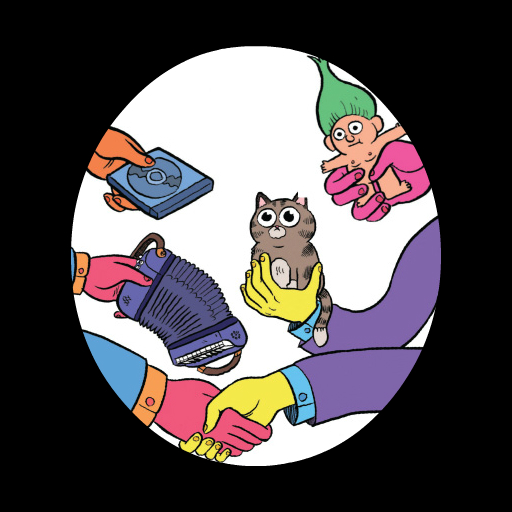Once upon a time people exchanged one goods against other ones, or against services. I’ll give you a stone axe if you help me kill a mammoth – but such arrangements take time. You have to find someone who thinks an axe is a fair trade for having to face the 12-foot beast that doesn’t take kindly to being hunted. If that didn’t work, you would have to alter the deal until someone agreed to the terms. One of the great achievements of money was increasing the speed at which business, whether mammoth slaying or monument building, could be done.
But now in times of difficult financial situations, people are trying to save wherever possible and barter trade has a big revival as a money-free trade possibility. The internet is creating the perfect platform for swapping whatever one needs and can offer.
Since the latest series of worldwide economic meltdowns, people have bartered in growing numbers. Last year, the 100 members of the International Reciprocal Trade Association, a network of barter and trade exchanges, facilitated the bartering of billions of dollars’ worth of goods and services around the world. (The IRTA uses its own barter currency called Universal Currency.) In some areas of Greece, bartering has become as second nature as paying for things with cash—there’s even a new barter-style currency called the TEM, accrued through offering goods and services via a vast online network and regular open-air market days. Spain’s time bank system, in which people exchange hours of labour instead of units of currency, has grown exponentially as a result of the country’s crippled economy.
The U.S. barter market is a staggering $12 billion annually. www.swap.com with currently more than 450,000 registered users is doubling the number of their deals every year.
There are regional sites, national ones as the Canadian site http://www.swapsity.ca/ and international ones as www.nightswapping.com with 180.000 members in 160 countries offering a new and authentic way to travel by swapping nights. Some are covering all type of goods and services, others are specialised on specific fields such as http://www.swapandsurf.com/ enabling surfers to swap home or http://www.dignswap.com/ for fashionists.
Swapping is not only a way of saving money but for some also a kind of sport resp. entertainment to discover with whom what to exchange and being part of a community. A way of rebelling against the uncertainties of a cash economy

0 Comments